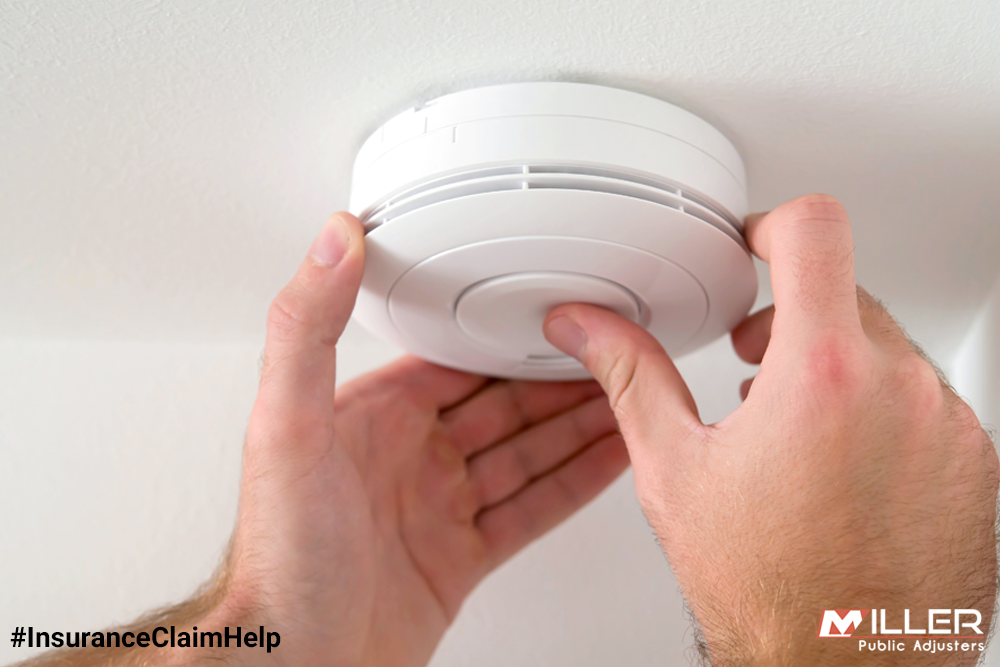
As public insurance adjusters, we have the benefit of knowing we will help every policyholder who brings us in to their fire damage insurance claim. It may be the only reason our team can take the heartache of seeing family after family who lost everything they have to fire.
Put your prevention plan in place
Oct. 7-13 is National Fire Prevention Week — the perfect time to put a fire prevention plan in place (say that three times fast!)
Examine your surroundings
Once a quarter, walk around the outside of your building(s), and go through every room, identifying potential fire risks as you go. There are many, including:
- Anything that produces heat — space heaters, grills, curling irons, candles, stoves, light bulbs — brings with it the potential for fire. Always leave plenty of space around these things, and never leave them unattended.
- Overloaded and aging electrical systems — multi-plugs, daisy-chained and under-rated extension cords, and worn or outdated wiring — need your immediate attention.
- Smoking materials — especially those used in bed — cause a disproportionate number of fire deaths. An ember can fall onto a mattress or seat cushion, and smolder long enough for the smoker (and others in the home) to fall asleep.
Test your smoke detectors
Smoke detectors give you a much-needed alert to escape a fire. Make sure you have detectors installed on every floor, with more than one on large floors or in areas separated by long hallways. Then:
- Test the alarm every month.
- Change the batteries every six months.
- Change the unit every 10 years. You can find the manufacturing date on the unit, usually on the back.
Practice your safety plan
Knowing your house is on fire is terrifying. Thick smoke fills the rooms very quickly, making it impossible to see. Your mind races, challenging your ability to make rational decisions. This is why it is critically important to make and practice your safety plan:
- Make sure everyone in your home knows what sound the smoke alarm makes.
- Identify two ways out of every room. If there aren’t two ways out of a room, never let anyone sleep in that room.
- Determine a rally point where your family members will meet after they evacuate. Whether it’s a neighbor’s house, a nearby park, or even just across the street, make sure everyone knows to go to the meeting place immediately.
Evacuate immediately
Prior planning can prevent many, but not all, fires. As this video from the National Fire Protection Association shows, flashover — the point when everything in a room bursts into flame — occurs about three minutes after the first flame is seen. That feels like a lot of time when you’re watching a video. When you wake to the sound of your smoke detector, though, it’s barely enough time to escape.
- It’s tempting to try to put a fire out. Fire professionals recommend against this, as you can easily be overcome by toxic gases and smoke. When the smoke alarm sounds, stay low, and exit as quickly as you can.
- Go directly to your rally point and call 911.
- Stay far away from a burning building.
- Never go back into a burning building.
Don’t become a statistic
Nearly 375,000 homes catch fire in the U.S. each year. These fires claim the lives of 2,600 people, injure 16,000 more, kill 40,000 pets, and leave behind $8 billion in property damage.
By taking some simple preventive measures, you and your family could avoid becoming part of these statistics.
.png?width=190&height=55&name=MPA%20Logo%20Vector%20-%20Original%20(3).png)

.webp?width=331&height=382&name=ResourcesCTA-Fin-001%20(1).webp)



